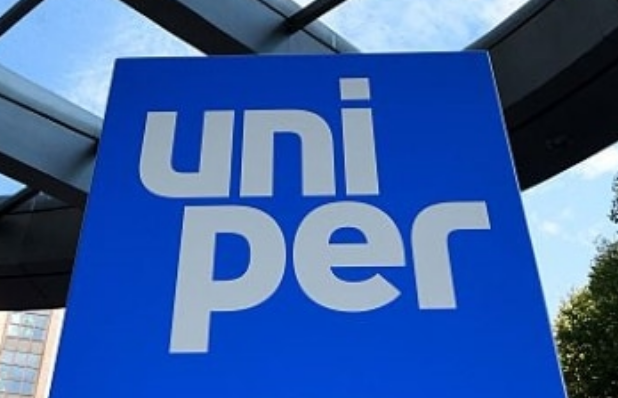VIPsight - 2nd Edition 2020
COMPANIES
Uniper SE: Fortum reached its Goal. What´s next?
 Although the homepage still carries the opening statement “Wellcome to the new Uniper!”, the resignation of all five independent Supervisory Board Members on April 3rd indicates that the days of “new Uniper” are over. The move is a reflection of recent changes in the ownership structure, with Fortum increasing its shareholding to close to 70 percent of all shares outstanding.
Although the homepage still carries the opening statement “Wellcome to the new Uniper!”, the resignation of all five independent Supervisory Board Members on April 3rd indicates that the days of “new Uniper” are over. The move is a reflection of recent changes in the ownership structure, with Fortum increasing its shareholding to close to 70 percent of all shares outstanding.
In the early days of Uniper, some investors even regarded the company as a bad bank for the unattractive conventional energy assets of E.ON. Following the successful spin-off, E.ON later decided to sell its remaining shares in Uniper to Fortum, which since increased its holding to a majority position. However, Fortum´s approach was met with resistance by the former management of Uniper, which believed in an independent strategy of the group. As of today, it can be concluded that this strategy delivered good results, developing Uniper into one of the most successful European energy companies with an impressive return for investors.
But this chapter is closed by now. Hence, investors are looking forward to learning from the new management about the amended strategy and its medium-term implications, such as a potential bid for the outstanding shares in Uniper. A good opportunity to ask these questions should be this year´s AGM.
Grammer AG: The last Waves of a takeover attempt reach Amberg
 These have been tough times in Amberg. It all started with the controversial takeover battle between the Hastor family and the Chinese investor Ningbo Jifeng. No sooner had the undesirable investor clan Hastor been fended off and the Chinese partner on board when the management team said goodbye with a golden parachute within a few months.
These have been tough times in Amberg. It all started with the controversial takeover battle between the Hastor family and the Chinese investor Ningbo Jifeng. No sooner had the undesirable investor clan Hastor been fended off and the Chinese partner on board when the management team said goodbye with a golden parachute within a few months.
According to a press statement by the public prosecutor´s office in Frankfurt am Main, authorities are investigating six suspects on suspicion of violating the German Securities Trading Act. One of these people is suspected of having previously passed on inside information as a so-called “tipster”. Also, the investigating public prosecutor´s office is also conducting the fine proceedings against three former board members of a company and the company itself because of the allegation of two late ad hoc notifications. As part of the investigations, a total of 16 properties were searched in the Rhine-Main area and Bavaria, as well as in Berlin.
Grammer confirmed that these measures included two Bavarian locations of the company. However, as far as the company is aware there are no suspicions against current or former members of the Executive Board or current or former members of the Supervisory Board, and there are no suspicions against current or former senior employees of Grammer. The criminal investigation is aimed at five people who are not and have not been employees of Grammer, and there is no other connection to the company from Grammer´s point of view. The sixth person, however, is a Grammer employee in a lower management position. This person had no access to any inside knowledge, though. The company also informed that a case has been pending with BaFin since 2017 due to the allegation of two allegedly late published ad hoc releases in the first half of 2017. Grammer had the allegations rejected by its legal advisors. The last correspondence with BaFin was dated April 17, 2018, almost 22 months ago.
It is always good to see that the public prosecutor´s office takes its duties seriously. Although, a bit more pace and focus would not be harmful.
Deutsche Lufthansa AG: First restructuring Package decided, what´s next on the Agenda?
 Although the COVID-19 crisis has been going on for a while, strategic decisions for the time after that are seldom heard yet. This is probably because so many companies are still busy communicating postponements of AGMS, profit warnings, and dividend cancellations.
Although the COVID-19 crisis has been going on for a while, strategic decisions for the time after that are seldom heard yet. This is probably because so many companies are still busy communicating postponements of AGMS, profit warnings, and dividend cancellations.
No wonder that only a few companies think about tomorrow in this situation. A positive example is Lufthansa. The airline industry had a particularly heavy blow from this crisis, and it is still open if any airline can survive in 2020 without government help.
But Lufthansa is already one step further with the recent decision on a first restructuring package. The company expects a significant decline in air travel for the period after the crisis, while a return to pre-crisis levels is not expected in the foreseeable future. Based on this assumption, Lufthansa decided to reduce the capacity of flight operations and administration long term. Parts of the fleet will be permanently decommissioned, while other planes will be withdrawn from short-haul operations. Further reductions apply to Lufthansa Cityline and Eurowings, while the already initiated restructuring plans at Austrian Airlines and Brussels Airlines will be further intensified, including steps to reduce the fleets, while SWISS International Airlines is expected to take similar initiatives.
The flight operations of Germanwings will be discontinued to speed up the already planned bundling of all flights of the Eurowing Group in one unit. Also, the Lufthansa Group airlines have already terminated almost all wet-lease agreements with other airlines. There was also a clear message for the employees: The aim is to offer as many people as possible continued employment within the Lufthansa Group. In this respect, talks with unions and workers` councils are to be arranged quickly.
At first glance, Lufthansa´s decision on a first restructuring package as part of the preparations for the time following the crisis comes as a positive surprise. But then again, there are these ongoing rumors of a government bailout. With state money in the accounts, if definitively would become much harder to restructure the business for later times. Could it be that the package may not be aimed at the time after the crisis, but rather serves to prepare for a more substantial step?
Leoni AG: Ability to Restructure and full Funding confirmed, Pre COVID-19
Occasionally, bad things happen just in time to avert a greater evil. A prime example would be Leonie. In December 2019, the company identified substantial liquidity requirements to keep the ship afloat. Since, the refinancing of the business was substantially improved, resulting in a positive expert opinion according to IDW S 6 standard, confirming the ability to restructure and that Leoni is fully financed.
It took substantial efforts to ensure this outcome. As a consequence, the company received an increase in its available liquidity by at least EUR 200m. Steps taken included the expansion of an existing factoring program, sale and leaseback transactions of assets in Germany and China and the restructuring of various bilateral credit lines into a new syndicated credit line. No dividend shall be paid until the credit line is repaid in full.
At first glance, this looks like a great deal, concluded just at the right time. Only a few days later the COVID-19 crisis shocked the markets, and the outcome of the negotiations with the banks could have had a different outcome. Leoni - like most other companies - is expecting considerable burdens on sales, earnings, and liquidity and had to take countermeasures to limit the impact. In a recent statement, the company also announced the intention to take up the offer of the German Government and apply for financial aid. Also, Leoni confirmed that “it is in close contact with its customers and suppliers in order to overcome this extraordinary situation.” Banks were not mentioned at all.
Wirecard AG: It is not that easy to erase a Question Mark

So far, it is open whether and which of the newspaper´s accusations apply. However, a substantial part has been refuted so far. As far as allegations remain, the audit company KPMG recently informed Wirecard about an increased time required to complete the special audit, though. It is good to hear that most parts of the audit have not produced any substantial findings in these areas of investigation that would result in a need for correction of the financial statements for 2016, 2017 and 2018 investigation periods. Based on this information, it seems to be a solid interpretation that the business activities in India and Singapore, as well as the Merchant Cash Advance (MCA) / Digital Lending division, are clean, although it would be interesting to learn a bit more about the meaning of “substantial” in this respect. The ongoing audit of the third-party partner business will require a bit more time and is expected to be completed by April 22nd, 2020, by the latest. And here it comes again: “The extensive inspection of relevant documents, including those of external companies, and corona virus-related travel restrictions make the extended timeframe necessary.”
In this context, the postponement of the annual press conference and publication of the financial statements 2019 by three weeks to April 30th, 2020 is understandable. Shareholders of Wirecard look forward to a special weekend edition of the Financial Times at the beginning of May!
Heidelberger Druckmaschinen AG: Transfer of Funds from the Pension Fund helps to finance the Future
 Heidelberger Druckmaschinen (Heideldruck) found a creative way to finance its extensive restructuring program. The company adopted an action package for a short-term reduction in structural costs and long-term improvements in the company´s profitability. The plan is to focus on the profitable core business, to discontinue the production of loss-making products and to make long-term adjustments to production and structural costs that could lead up to 2,000 job cuts and possibly site closures. At the same time, Heideldruck will significantly improve its liquidity position by transferring a portion of the liquidity reserve of approximately EUR 355 million from the trust fund managed by Heidelberg Pension-Trust e.v. back to the company. This step is supposed to reduce the company´s fiduciary assets to the level required to secure all pension entitlements that are not covered by statutory insolvency insurance. The transfer is not expected to have a negative impact whatsoever on existing or future pension entitlements.
Heidelberger Druckmaschinen (Heideldruck) found a creative way to finance its extensive restructuring program. The company adopted an action package for a short-term reduction in structural costs and long-term improvements in the company´s profitability. The plan is to focus on the profitable core business, to discontinue the production of loss-making products and to make long-term adjustments to production and structural costs that could lead up to 2,000 job cuts and possibly site closures. At the same time, Heideldruck will significantly improve its liquidity position by transferring a portion of the liquidity reserve of approximately EUR 355 million from the trust fund managed by Heidelberg Pension-Trust e.v. back to the company. This step is supposed to reduce the company´s fiduciary assets to the level required to secure all pension entitlements that are not covered by statutory insolvency insurance. The transfer is not expected to have a negative impact whatsoever on existing or future pension entitlements.
Heidelberg plans to use the additional liquidity to eliminate nearly all of its net debt. In particular, the plan is to pay off a high-yield EUR 150 million bond early and to substantially improve the company´s financing structure. The company estimates that – depending on the outcome of negotiations with the employee representatives as well as accounting charges in the financial year 2019/20 – the non-recurring expenses required to implement the action package will total about EUR 300 million.
Wow, this news probably creates a lot of work with the IR of companies with comparable trust fund structures.
Infineon Technologies AG: Progress with the Acquisition of Cypress Semiconductor Corporation
 Time passes quickly. Infineon´s plans to acquire Cypress Semiconductor Corporation were published in early June 2019. The transaction, which was valued at EUR 9 billion at the time, should help to strengthen the focus on structural growth drivers and serve a broader range of applications. But most of all, it was supposed to accelerate Infineon´s “path of profitable growth”. The closing of the transaction was expected by the end of 2019, or early 2020. But while the ad hoc announcement underpinned the importance of speed in this way, even nine months later the transaction still has not been concluded. The obstacle still is missing approvals by the relevant regulatory bodies.
Time passes quickly. Infineon´s plans to acquire Cypress Semiconductor Corporation were published in early June 2019. The transaction, which was valued at EUR 9 billion at the time, should help to strengthen the focus on structural growth drivers and serve a broader range of applications. But most of all, it was supposed to accelerate Infineon´s “path of profitable growth”. The closing of the transaction was expected by the end of 2019, or early 2020. But while the ad hoc announcement underpinned the importance of speed in this way, even nine months later the transaction still has not been concluded. The obstacle still is missing approvals by the relevant regulatory bodies.
In this regard, the recently granted approval by the Committee on Foreign Investment in the United States was a major step forward and appreciated by investors. According to Bloomberg, Cypress stated that “CFIUS has completed its review of Cypress´s previously announced merger transaction with Infineon Technologies AG and determined that there are no unresolved national security concerns”. However, the combination still needs a sign-off from China´s State Administration for Market Regulation, according to Bloomberg. Many analysts seem to think that this is an easy hurdle. However, here it comes again: While in the days pre-COVID 19 the trade war between the US and China seemed to fade away, new massive disputes are emerging due to the Chinese handling of the disease.















